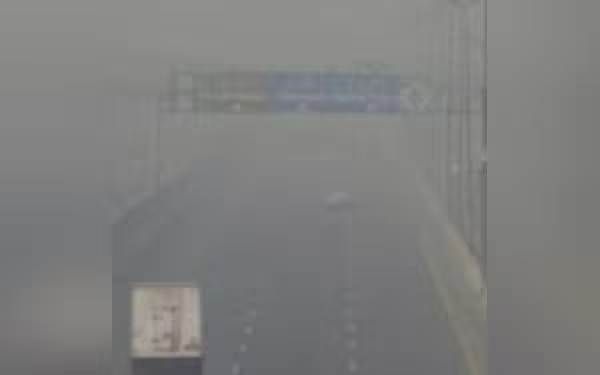Thursday, November 7, 2024 05:36 AM
Punjab Government Closes Schools Due to Severe Smog Crisis
- Schools closed in Punjab until November 17 due to smog.
- Masks mandated in public spaces across affected districts.
- Air quality in Lahore reaches alarming levels, prompting urgent action.
 Image Credits: pakistantoday
Image Credits: pakistantodayPunjab government closes schools and mandates masks in response to severe smog crisis affecting air quality.
In recent weeks, the province of Punjab has been grappling with a severe air quality crisis, primarily due to the onset of smog. This environmental issue has reached alarming levels, prompting the Punjab government to take decisive action. On Wednesday, the government announced the closure of schools from primary to 12th class in the most affected districts until November 17. This measure aims to protect the health of students and the general public as the Air Quality Index (AQI) in Lahore soared to a staggering 1,165, with some neighborhoods recording even higher levels.
Senior Minister Maryam Aurangzeb addressed the media, highlighting the urgent need for protective measures against the hazardous air quality. She pointed out that smog, which is a mixture of fog and pollutants, has been exacerbated by various factors, including crop residue burning and pollution drifting from neighboring India. Areas such as Defence Phase VIII, Davies Road, and Gulberg have been particularly hard hit, with AQI readings reaching as high as 1,696.
To combat this crisis, the Punjab government has not only closed schools but has also mandated the use of masks in public spaces across Lahore, Gujranwala, Faisalabad, and Multan divisions. This advisory is in effect until January 31, 2025, as officials warn of a significant increase in respiratory diseases linked to the deteriorating air quality. The government has also implemented a 50% remote work policy for employees in both public and private sectors in the affected regions, ensuring that essential services continue while minimizing exposure to the harmful air.
Maryam Aurangzeb emphasized the importance of addressing the pollution issue at its source. She announced that a letter would be sent to the Foreign Office, urging the Indian government to take action against pollution that is affecting Pakistani cities. Furthermore, a Smog War Room has been established at the Environmental Protection Agency to monitor air quality and coordinate efforts to tackle this pressing issue.
The situation in Lahore is dire, with air pollution levels reported to be nearly 80 times above the World Health Organization's (WHO) dangerous limit. The PM2.5 pollutants, which are particularly harmful to health, have reached alarming levels, prompting health officials to issue warnings to the public. The combination of low-grade diesel fumes, smoke from agricultural burning, and winter weather conditions has created a perfect storm for smog formation.
As the government takes these necessary steps, it is crucial for the public to remain informed and proactive in protecting their health. Wearing masks, avoiding outdoor activities during peak smog hours, and staying updated on air quality reports can help individuals mitigate the risks associated with poor air quality. The ongoing efforts by the Punjab government reflect a commitment to safeguarding public health, but it is equally important for citizens to play their part in this collective fight against pollution.
The smog crisis in Punjab serves as a stark reminder of the urgent need for environmental awareness and action. As the government implements measures to combat this issue, it is essential for the community to remain vigilant and prioritize health and safety. Together, through informed choices and collective action, we can work towards a cleaner and healthier environment for all.













